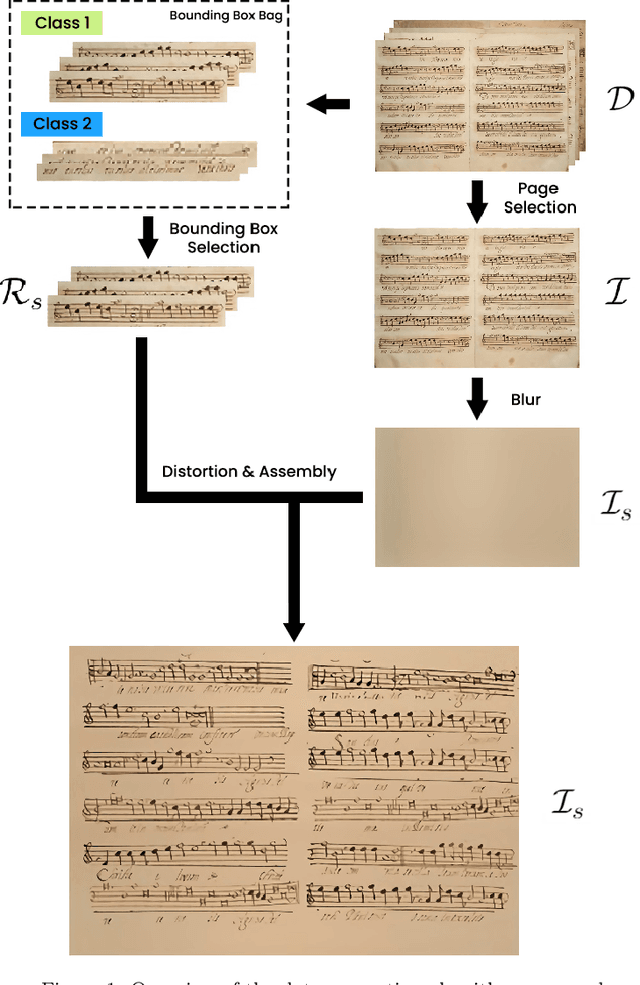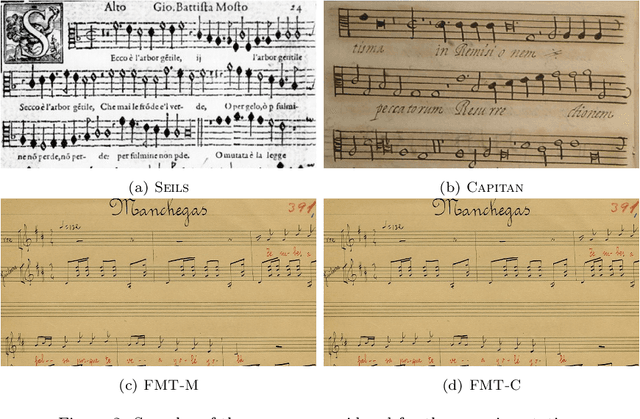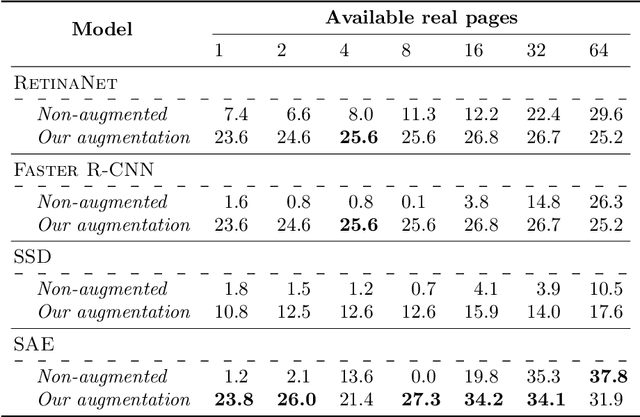Region-based Layout Analysis of Music Score Images
Paper and Code
Jan 11, 2022



The Layout Analysis (LA) stage is of vital importance to the correct performance of an Optical Music Recognition (OMR) system. It identifies the regions of interest, such as staves or lyrics, which must then be processed in order to transcribe their content. Despite the existence of modern approaches based on deep learning, an exhaustive study of LA in OMR has not yet been carried out with regard to the precision of different models, their generalization to different domains or, more importantly, their impact on subsequent stages of the pipeline. This work focuses on filling this gap in literature by means of an experimental study of different neural architectures, music document types and evaluation scenarios. The need for training data has also led to a proposal for a new semi-synthetic data generation technique that enables the efficient applicability of LA approaches in real scenarios. Our results show that: (i) the choice of the model and its performance are crucial for the entire transcription process; (ii) the metrics commonly used to evaluate the LA stage do not always correlate with the final performance of the OMR system, and (iii) the proposed data-generation technique enables state-of-the-art results to be achieved with a limited set of labeled data.
 Add to Chrome
Add to Chrome Add to Firefox
Add to Firefox Add to Edge
Add to Edge